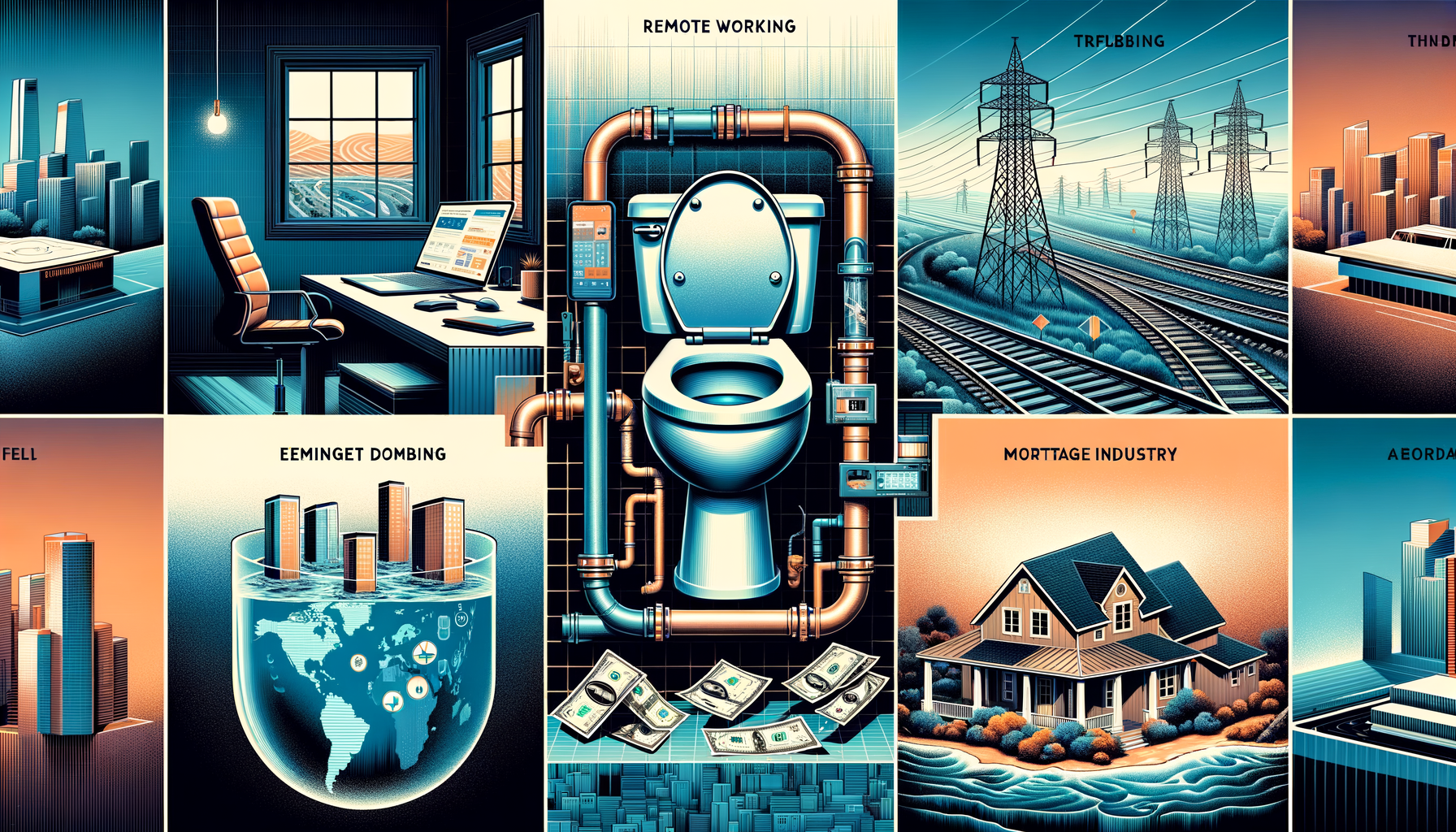“Unveiling the Future Trends: A Deep Dive into the Mortgage Industry”
In keeping with the era of digital technology and online resources, working remotely from home is increasingly becoming a common practice worldwide. The remote working culture is revolutionizing the way businesses operate, saving commuting time, and providing us with the freedom to work from any corner of the globe. However, it also comes with its fair share of challenges. Your home could be in an area without robust internet connectivity, or you could be in a timezone several hours removed from your team. Nonetheless, with effective management and technological tools, remote working can be an excellent solution in today’s fast-paced world.
Now, on a seemingly unrelated note, have you ever taken a moment to ponder why toilets have a curved pipe structure, the notorious “S bend” or “U bend”? Well, let’s take a brief detour from the digital working scenario to discuss this. Invented in the 18th century by Alexander Cumming, the purpose of this design is to trap a small amount of water after each flush, creating a barrier that prevents sewer gases from entering homes. This ingenious solution not only improved sanitation but also became an integral part of every modern toilet worldwide.
Now, making a swift transition from toilets to an equally uncharming topic, let’s talk about eminent domain. For those unfamiliar, eminent domain is the power of a government to take private property for public use. This right is often exercised when the government needs the land for public works, like building highways or railroads. However, the owners must receive compensation based on fair market value.
Consider a scenario where the government plans to build a commuter rail line connecting two towns. They’ll need to acquire land along the proposed route to construct the rail line. There may be acres of farmland, a few houses, even a business or two in the path of this proposed route. They’ll assess the property based on its current value and offer the owners a sum that should, at least theoretically, enable them to relocate without being economically worse off.
While it’s easy to understand why this may feel unfair to those who have to give up their homes, it is equally important to understand that governments resort to eminent domain only when the proposed work provides benefits that outweigh individual interests. This practice has a long history in the United States and has been used to develop some of our most critical infrastructure.
Staying within the realm of government regulations, let’s delve into the world of mortgage rules and regulations. For real estate professionals, late January brings a flood of news about mortgage-related legislation and policy investigations. Mortgage companies are keeping an eye out for contaminant issues due to suggested changes to the Environmental Protection Agency’s (EPA) regulations. These new requirements could potentially influence the way lenders evaluate the risk of the properties they lend on.
One significant issue making waves is the proposed changes to wetlands regulations by the EPA. The change would alter the definitions of regulated water bodies, making the future of waterfront properties uncertain. In essence, it challenges the decisions of mortgage companies that operate in these areas.
On a different note, the financial landscape continues to change, and also those in the mortgage business need to adapt to a continually evolving environment. To thrive in this sector, they must be fully aware of and compliant with all regulations and be ready for any changes in the legal landscape. This way, they can protect their clients as well as their business.
Technology has started playing an increasingly large role in this industry. All areas of the mortgage process, from origination to closing, require access to powerful computer systems and software. Moreover, digital marketing has overtaken traditional methods, and most leads come through online channels. As such, the need for Cyber Liability Insurance (CLI) is critical for firms operating in this industry to protect their digital assets and customer data from cyber-attacks.
As you can see, the industry’s landscape is continually shifting, making it crucial for firms to stay updated with the latest happenings and regulatory changes. The real estate industry is so vital for the economy, yet it is fraught with intricacies that make it challenging to navigate and comprehend fully. With continual changes in regulations and constant technological upheavals, one must keep abreast of the happenings to stay relevant.
In conclusion, whether you’re a digital nomad adapting to remote working or a mortgage firm navigating tough legal terrains, the key is to keep up with the changing times. Understanding the intricacies of regulations, adopting new tools, and staying abreast of industry trends will arm you to overcome the challenges thrown your way. The challenging tide of our present times demands adaptability, so equip yourself to meet the surge head-on.

